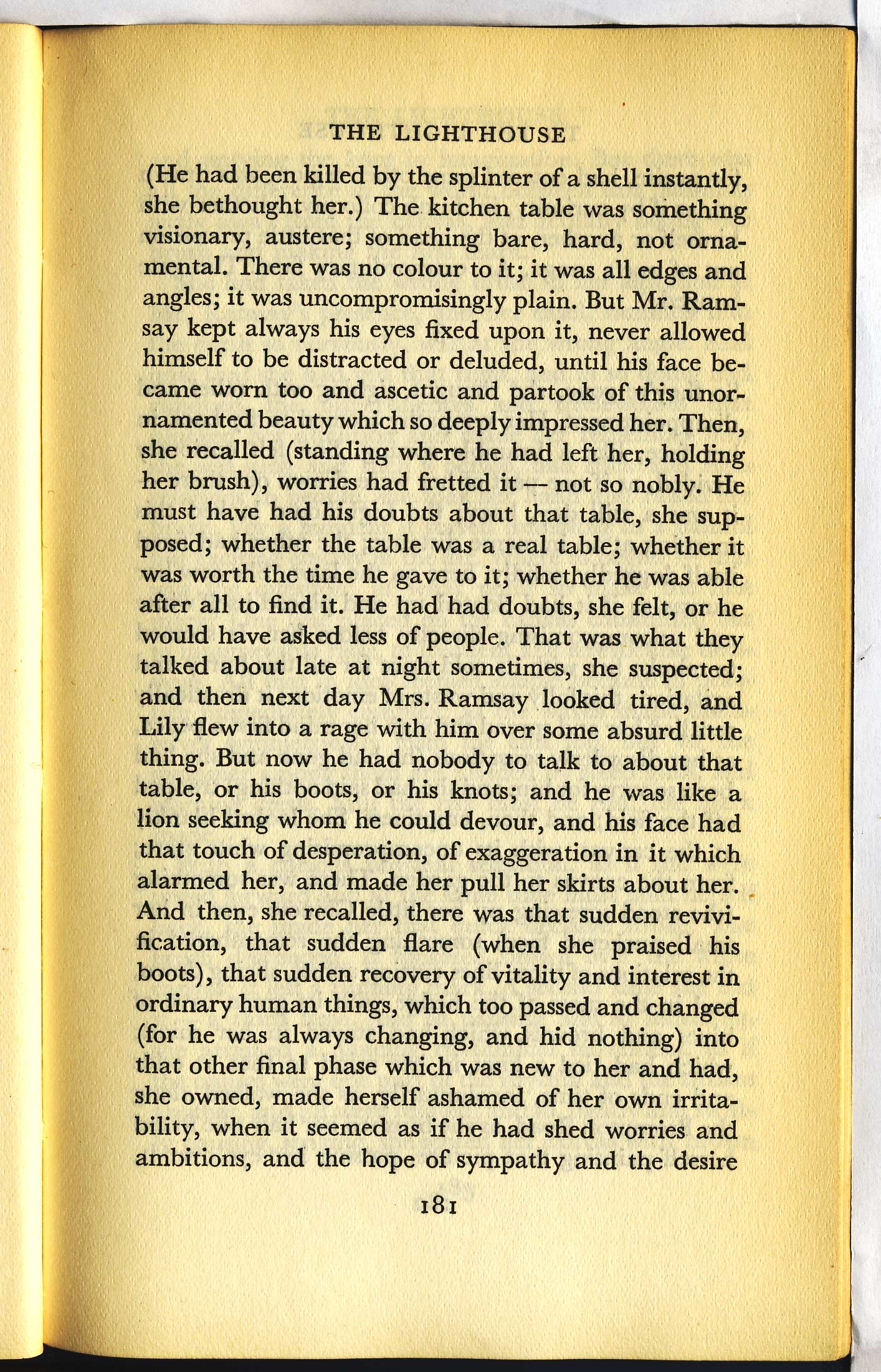
THE LIGHTHOUSE(He had been killed by the splinter of a shell instantly,she bethought her.) The kitchen table was somethingvisionary, austere; something bare, hard, not orna-mental. There was no colour to it; it was all edges andangles; it was uncompromisingly plain. But Mr. Ram-say kept always his eyes fixed upon it, never allowedhimself to be distracted or deluded, until his face be-came worn too and ascetic and partook of this unor-namented beauty which so deeply impressed her. Then,she recalled (standing where he had left her, holdingher brush), worries had fretted it — not so nobly. Hemust have had his doubts about that table, she sup-posed; whether the table was a real table; whether itwas worth the time he gave to it; whether he was ableafter all to find it. He had had doubts, she felt, or hewould have asked less of people. That was what theytalked about late at night sometimes, she suspected;and then next day Mrs. Ramsay looked tired, andLily flew into a rage with him over some absurd littlething. But now he had nobody to talk to about thattable, or his boots, or his knots; and he was like alion seeking whom he could devour, and his face hadthat touch of desperation, of exaggeration in it whichalarmed her, and made her pull her skirts about her.And then, she recalled, there was that sudden revivi-fication, that sudden flare (when she praised hisboots), that sudden recovery of vitality and interest inordinary human things, which too passed and changed(for he was always changing, and hid nothing) intothat other final phase which was new to her and had,she owned, made herself ashamed of her own irrita-bility, when it seemed as if he had shed worries andambitions, and the hope of sympathy and the desire181









